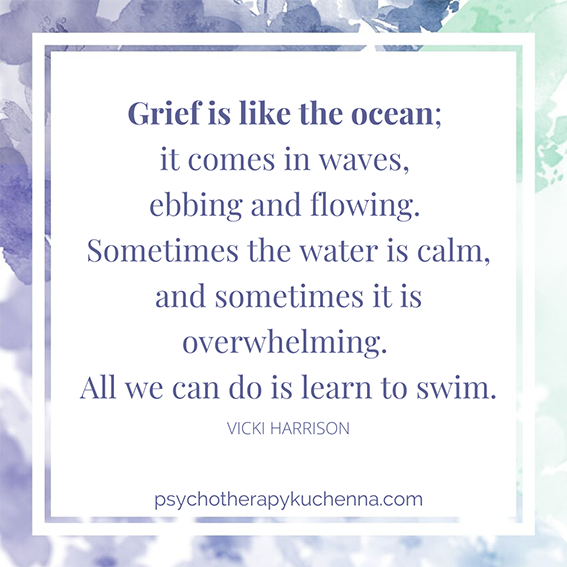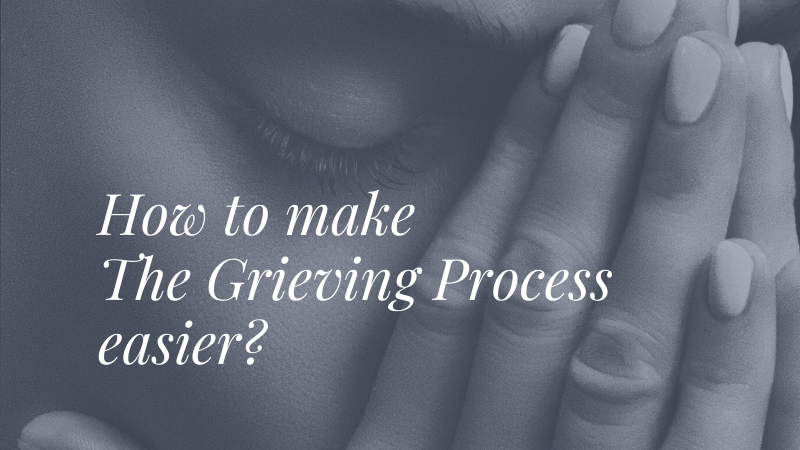There is no right or wrong way to grieve,
but there are healthy ways to deal with the grieving process.
WHAT IS GRIEF?
Grief is a normal response to loss. It’s the emotional distress you feel when something or someone you love is gone. Often, the pain of loss you can feel is overwhelming. Additionally, you may experience all types of difficult and unexpected emotions, from shock or anger to disbelief, guilt, and profound sadness. However, the pain of grief can also disrupt your physical health, making it difficult to sleep, eat, or even think straight. These are normal reactions to loss – and the more significant the loss, the more intense your grief will be.
It’s worth noticing that coping with the loss of someone or something you love is one of life’s biggest challenges. You may associate grieving with the death of a loved one – which is often the cause of the most intense type of grief – but any loss can cause grief, and that includes:
- Divorce or relationship break up
- Loss of health
- Losing a job
- A miscarriage
- Retirement
- Loss of financial stability
- Death of pet
- Loss of a friendship
- A loved one’s serious illness
- Loss of safety after a trauma
- Selling the family home
- Loss of a cherished dream
DON’T MINIMISE YOUR LOSS
It’s important to understand that even subtle losses in life can trigger a sense of grief. We are all different, and different things and people have significant roles in our lives. Don’t compare your grief to someone else’s grief. Everyone is dealing with their grief in their own way. Again, grief is very unique and individual. For example, you might grieve after moving away from home, graduating from college, or changing jobs. Whatever your loss, it’s personal to you, so don’t feel ashamed about how you feel, or believe that it’s somehow only appropriate to grieve for certain things. If the person, animal, relationship, or situation was important to you, it’s normal to grieve the loss you’re feeling. Whatever the cause of your grief, though, there are healthy ways to cope with the pain that, in time, can ease your sadness and help you come to terms with your loss, and find a new meaning.
For some people, grief is a short-term phenomenon, also known as acute grief, although the pain may return unexpectedly at a later time. But other individuals may experience prolonged grief, also known as complicated grief, lasting months or years. Without help and support, such grief can lead to isolation and chronic loneliness.
WHAT CAN YOU EXPECT
Grief does not happen in a set way. Moreover, grief is not like having the flu, where you feel very ill and then begin to feel a bit better until you finally return to being your old self again. The feelings and thoughts of grief come and go in waves. Sometimes you might feel you are coping quite well, only to experience a burst of grief when you are reminded of your loss. It can be confusing to suddenly feel angry, for example, if you feel you have already ‘gotten over’ being angry about a loss. It might help to remember that the thoughts and feelings will come and go as you try to come to terms with grief while living your day-to-day life.
There are many parts to grief you may not have expected. You may have physical symptoms, for example, feeling tired or unable to eat. You may struggle with existentialism, with questions about the meaning of life, and with your faith and your beliefs about what happens after death.
REMEMBER:
- Grief is a process and it takes time.
- Everyone’s grief is different.
- There is no right way to grieve.
- Strong emotions and thoughts are part of grief.

THE GRIEVING PROCESS
Grieving is a highly individual experience; there’s no right or wrong way to grieve. How you grieve depends on many factors, including your personality and coping style, your life experience, your faith, and how significant the loss was to you.
Inevitably, the grieving process takes time. Healing happens gradually; it can’t be forced or hurried – and there is no “normal” timetable for grieving. Some people start to feel better in weeks or months. For others, the grieving process is measured in years. Whatever your grief experience, it’s important to be patient with yourself and allow the process to naturally unfold.
THE STAGES OF GRIEF
Elisabeth Kübler-Ross introduced what became known as the “five stages of grief.” These stages of grief were based on her studies of the feelings of patients facing terminal illness, but many people have generalized them to other types of negative life changes and losses, such as the death of a loved one or a break-up.
The five stages of grief
Denial: “This can’t be happening to me.”
Anger: “Why is this happening? Who is to blame?”
Bargaining: “Make this not happen, and in return I will ____.”
Depression: “I’m too sad to do anything.”
Acceptance: “I’m at peace with what happened.”
If you are experiencing any of these emotions following a loss, it may help to know that your reaction is natural and that you’ll heal. However, not everyone who grieves goes through all of these stages – and that’s okay. Contrary to popular belief, you do not have to go through each stage in order to heal. In fact, some people resolve their grief without going through any of these stages. And if you do go through these stages of grief, you probably won’t experience them in a neat, sequential order, so don’t worry about what you “should” be feeling or which stage you’re supposed to be in.
“There is not a typical response to loss, as there is no typical loss.
Our grieving is as individual as our lives.”
SOME WAYS TO COPE WITH A LOSS
- Don’t be afraid to let yourself cry. It’s good to let your feelings out. Take your own time to heal.
- Be around people who love you. You need friends and people you care about to help you, talk and listen to you and, most importantly, understand you.
- There is no set time when someone stops grieving. Everyone grieves differently, but the feelings they have are just the same as yours.
- It is important not to hide how you feel for fear of upsetting others. Even if others do burst into tears with you, there’s nothing wrong with that.
- Don’t be afraid to ask for a hug. One of the most comforting and reassuring things a friend can do for you is hug you. Just knowing they’re there for you can be a huge help.
- Write down your thoughts. Another helpful thing to do can be to write a letter to the person you lost. Keep it for yourself.
- Don’t feel guilty for getting on with your life. Remember that even though you’ll never forget, in time you will be able to let go without feeling disloyal or guilty.
WHAT MAY HELP?
Grief is a normal but challenging part of life. There are different levels of bereavement care. A majority of people will only need general support and information to help with their loss. Here are more tips for dealing with your grief:
- Seek out accurate information about grief and loss.
- Be patient and gentle with yourself as you grieve.
- Recognize the extent of your loss.
- Allow yourself to cope and to grieve in a way that suits you.
- Try to sleep well, eat well, and take gentle exercise.
- Try not to make major or rash decisions while you grieve.
- Accept emotional and practical support from friends and family.
- Talk to your GP or look for a qualified psychotherapist if you feel you need further support.

